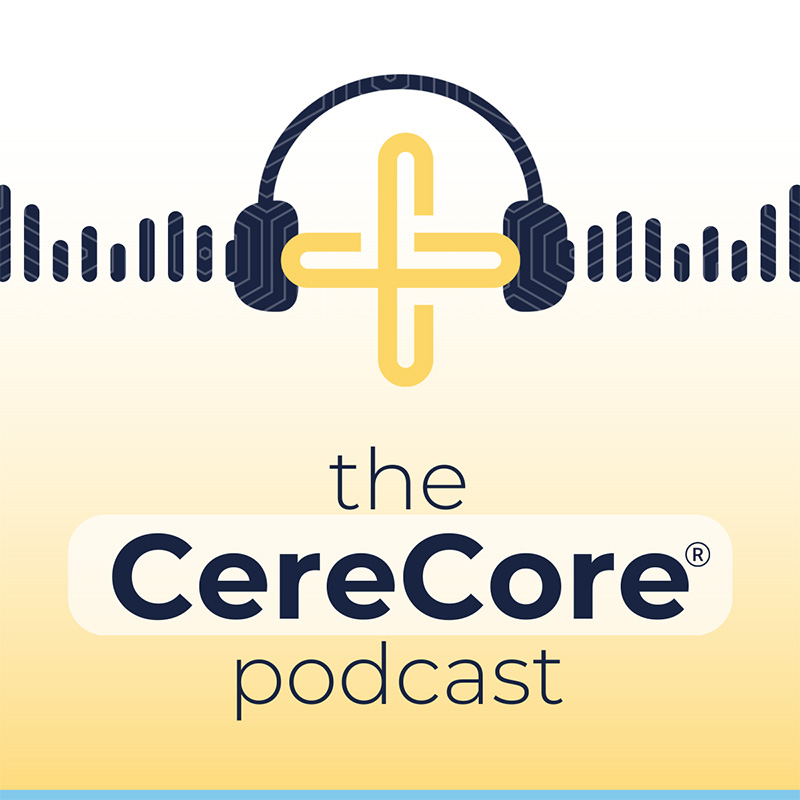

By CereCore | Jun 16, 2023
3 minute read EHR/EMR| Blog| Client Perspectives
Crossroads — these are familiar places for healthcare IT leaders today. Al Smith, SVP and CIO of Lifepoint Health, shares advice from his extensive career leading through decades of change in healthcare IT and his approach to operating complex technology ecosystems. In this conversation on The CereCore Podcast with host Phil Sobol, vice president of business development at CereCore, Al explains his approach to leadership and decision-making during health system growth, from operating multiple EHRs to collaborating across companies and facilities and finding partners who can help an organization push forward for the benefit of providers and patients.
What would your non-negotiables be?
Sobol: You have led IT organizations and teams through acquisitions and mergers. You've managed a very complex environment with multiple EHR environments. What does that decision making process look like for you as a leader when you come to some of those pivotal crossroads?
Smith: All of us try to leverage our prior experience. I found a lot of times if you just say I've done this before, here's what I'm going to do. You make mistakes.
Understand every organization is where they are for a reason, even if you think it's crazy how they're organized.
There is a rational reason why they are there. First try to understand. Listen. I think that is always important.
Usually, our due diligence process is to ask a lot of questions. Data gathering, and just trying to understand. You can make some rational decisions based on data. Do you convert their EMRs? What do you do?
I find that it is especially important when you start talking about the human side, the teams, the organization. Overall, I'm kind of an incrementalist. I'm not somebody who's usually going to go in, unless I have to for some reason, and just start over.
Usually that’s not a good way to do it. You can cause a lot of wreckage that way. Understand and then start to figure out what's the best thing.
Learn from what you have from the past. Learn from what this company that you're merging with or acquiring—they've got best practices. They probably do some things better than you do and you do some things better than they do. The end product is to figure out how to blend that together.
Now I will say I've made some mistakes along the way. I think you do have to have what I'll call “non-negotiables.” I'll throw cybersecurity in there.
Pretty quickly you need to get to—this is the common set of security tools that we think best protects the new company. You may have to be a little dictatorial about that.
That's an example with cyber in today's environment. You don't get a lot of options. This is where we are going to go with it. I find the non-negotiables are a lot smaller than the negotiables. Let's think about this and what's the right way to do it.
The other thing you brought up is because we run so many different EMRs and different systems—look for tools that are EMR agnostic.
Why do you have to rip out the EMR? Yes, there is a time and a place to do that.
But if you can wrap things around and make it better for your clinicians and more effective and maybe more efficient. Do you really need to do that?
Challenge those assumptions that — well, we have always done this. That's not necessarily the right answer. I tell my team quite often if you tell me, “That's the way we've always done it.” That's absolutely the wrong answer to give me, because that's not a rationale. Tell me why it applies this time, because it may not.
More advice about crossroads
Listen to the full podcast episode for more of Al Smith’s advice on how he has approached each of these key leadership turning points:
.png)
More podcast episodes
Hear perspectives from other healthcare leaders and provider on The CereCore Podcast:
Subscribe to The CereCore Podcast on your favorite podcast platform.
More resources
Find a library of CereCore ebooks on topics such as technical debt, MEDITECH hosting, MEDITECH Expanse, Managed Services and IT Staffing, and IT Help Desk.
Don't miss an episode of insights from healthcare IT leaders and experts. Subscribe to the podcast on Spotify or Google Play. Share what you've learned with your network, too.

CereCore® provides IT services that make it easier for you to
CereCore® provides IT services that make it easier for you to
Let us know how we can support your initiatives and take some of the heavy lifting from healthcare IT.
© All Rights Reserved CereCore Terms of Service California Notice at Collection Privacy Policy Responsible Disclosure